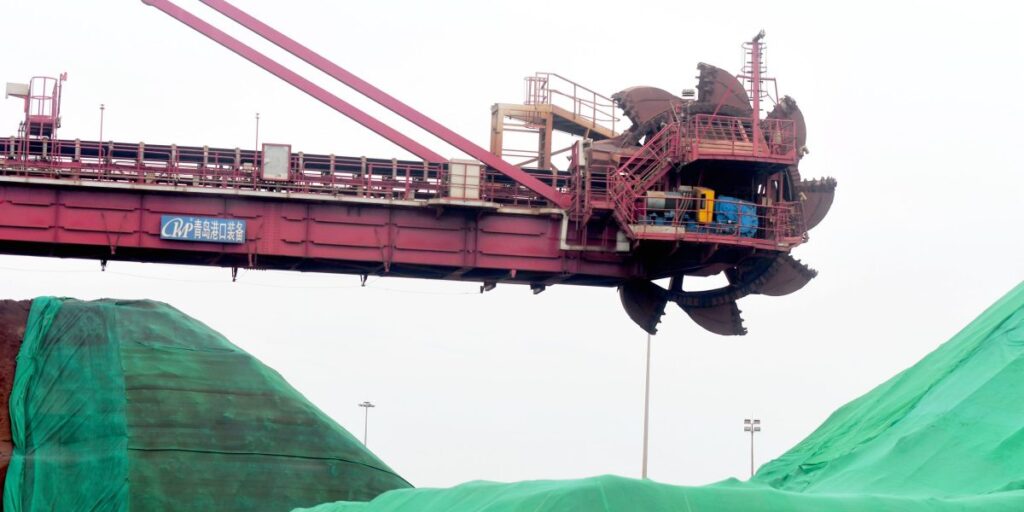Over the past year, China has tightened its grip on the global supply of nearly 20 critical minerals by placing restrictions on gallium, rare earths, and, most recently, antimony. These actions, which Beijing has justified with opaque references to national security concerns, underscore a troubling reality: China’s dominance over essential resources gives it tremendous power to weaponize its market position against the United States and its allies.
The impact is already being felt. Prices for gallium, a crucial component of semiconductors and solar panels, roughly doubled in Europe after China began imposing export curbs in mid-2023. The same fate could await the market for antimony, which is used in flame retardants, batteries, and defense applications like night-vision goggles and nuclear weapons. With demand for these building blocks of the modern economy skyrocketing as the world races to electrify transportation, digitize industry, and fortify defense capabilities, the prospect of crippling shortages looms large.
Yet the United States remains heavily reliant on imports, especially from China, for many of these essential materials. The past year’s developments suggest Beijing is increasingly willing to exploit this reliance to further its geopolitical agenda and outmaneuver the West. If we fail to act, we risk ceding control over the very foundation of our technological future to our greatest rival.
To secure our technological future, we must urgently develop domestic sources of critical minerals. However, traditional mining methods are often environmentally destructive and face strong public opposition. Many mining practices have remained nearly unchanged for centuries. As one senior government official put it, Pliny the Elder would recognize most of the techniques used in today’s mines. In some cases, it’s estimated that the economic costs of air, water, and climate pollution from mineral extraction can exceed the market value of the minerals themselves.
What’s needed is a fundamental reinvention of the mining industry—one that leverages cutting-edge innovations in fields like synthetic biology, advanced materials, artificial intelligence, and chemical engineering to make mineral production cleaner, more efficient, and more sustainable. We must also diversify the supply stream by finding innovative ways to recycle critical minerals from discarded devices and industrial waste streams. By creating a circular economy for these valuable materials, we can reduce the environmental impact of mining while also bolstering our domestic supply chains. This dual approach will require a new generation of brilliant engineers and scientists who can pioneer novel extraction, processing, and recycling technologies.
Yet despite the immense potential for impact and generational wealth creation, mining is failing to attract top talent in the United States. Many American students perceive the industry as old-fashioned and ecologically damaging, opting instead for fields like biotech, artificial intelligence, or carbon removal. In stark contrast, China’s mining education pipeline is thriving: The China University of Mining and Technology alone enrolls more mining engineering students than all U.S. universities combined.
To close this alarming gap, we must redefine mining as a frontier for technological disruption and a key enabler of the clean energy transition. Attracting a new generation of brilliant minds to reimagine mineral production won’t just yield massive financial rewards for American companies. It will bolster U.S. manufacturing, create skilled jobs, accelerate climate change mitigation, and strengthen our geopolitical position. Ceding leadership in this critical field is a luxury we simply cannot afford.
Washington has begun to recognize the urgency of the challenge, with the Pentagon expanding the National Defense Stockpile to include critical minerals and the Department of Energy launching new initiatives to catalyze private-sector innovation in this space. However, we need an all-of-society effort: Industry, academia, and policymakers must work in concert to build a world-leading, environmentally responsible mining sector for the 21st century.
To attract top talent, universities should follow the lead of Stanford and the Colorado School of Mines by expanding mining and minerals engineering programs, with a focus on state-of-the-art technology and environmental stewardship. Investors and major industrial consumers of critical minerals, from automakers to defense contractors, should actively support and fund promising startups working to remake the mining industry. And policymakers at all levels should prioritize permitting reform, investment in research and development, and workforce development to accelerate the responsible domestic production of critical minerals.
By reimagining mining for the digital age, we can create a cleaner, more secure, and more prosperous future—one in which America is no longer at the mercy of foreign powers for the critical minerals that underpin our national security and power our economy. Realizing this vision will require the brightest minds of a new generation to see mining not as a relic of the past but as a vanguard industry where they can apply their talents to solve one of the greatest challenges of our time. The race is on, and we can’t afford to lose.
More must-read commentary published by Fortune:
The opinions expressed in Fortune.com commentary pieces are solely the views of their authors and do not necessarily reflect the opinions and beliefs of Fortune.
Data Sheet: Stay on top of the business of tech with thoughtful analysis on the industry’s biggest names.
Sign up here.
